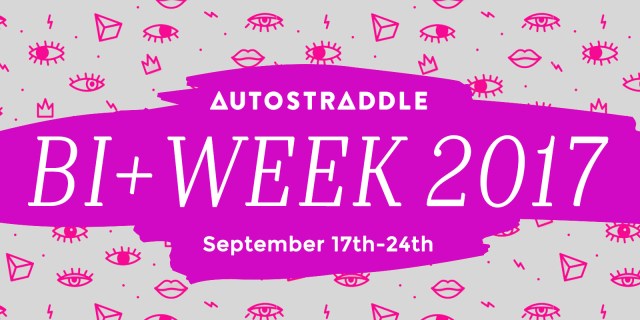
In honor of Bi Visibility Week, here are 15 must-read bisexual nonfiction books, including memoir, theory, studies, and anthologies. Whether you’re looking for powerful personal bisexual narratives, insightful political analysis of bisexual issues, or information to help understand bisexuality, there are books in here you won’t want to miss!
Bi: Notes for a Bisexual Revolution by Shiri Eisner
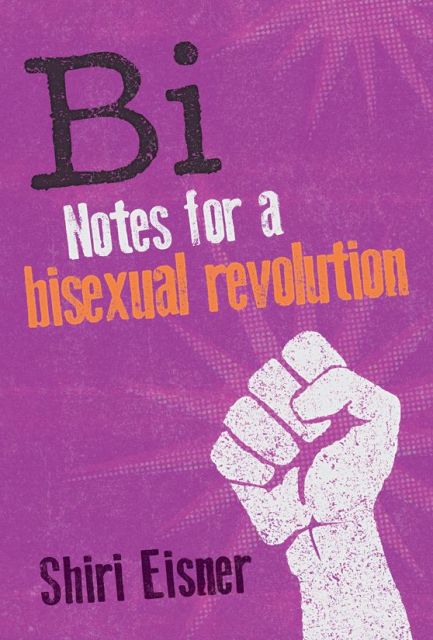
This book is essential reading for any bisexual person and anyone who wants to understand the bi people in their life. Bi takes a comprehensive look at bisexual politics, from biphobia and monosexism to feminism and trans issues. Eisner tackles topics like bisexual stereotypes, accusations that bisexuality “reinforces the gender binary” and otherwise contributes to the dominant social order, myths about bisexuality (like it doesn’t exist or that everyone is really bi), the fact that bi men are deemed gay and bi women are deemed straight, the issue of bi people being accused of having heterosexual privilege and more! Reading Bi changed my life as a bi person.
Chronology of Water by Lidia Yuknavitch
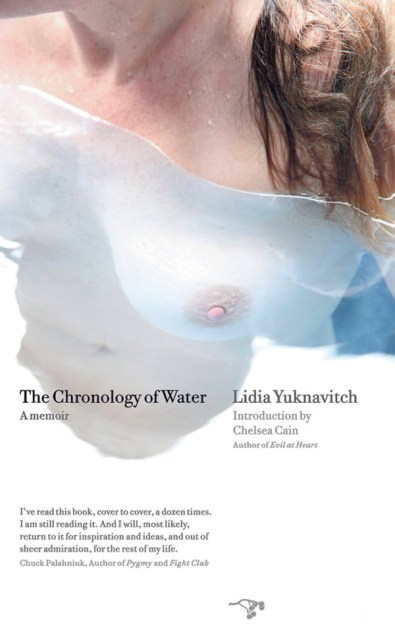
Chronology of Water is a beautifully written memoir with rich language and stark images. As Yuknavitch chronicles her life, she jumps back and forth in time, deconstructing the very concepts of memoir, memory, and time. She writes, most of all, about her body: drug use, child birth, gender, destructive relationships, abuse, swimming, grief and sex. Chronology of Water prominently features Yuknavitch’s bisexuality, including a lot of hot sex writing featuring women, men and BDSM. She also writes wonderfully about the craft of writing itself: “My first book came out of me in a great gushing return of the repressed. Like a blood clot had loosened. …Words from my whole body, my entire life, or the lives of women and girls whose stories got stuck in their throats.”
The B Word: Bisexuality in Contemporary Film and Television by Maria San Filippo

This 2014 Lambda Award winner for bisexual nonfiction fills a gigantic gap in both queer studies and film and media writing. If you’ve ever been annoyed at the ludicrous ways in which movies and TV shows manage to avoid the “b” word, San Filippo’s book is a godsend. She writes about all sorts of different genres, from art cinema to vampire movies to “bromances” to popular TV shows. The book discusses, among other topics, Chasing Amy, Mulholland Drive, Angelina Jolie, Roseanne, The L Word and plenty more. Not only does Filippo make a strong argument for how pervasive compulsory monosexuality is in media, she also does really surprising bisexual readings of familiar movies and TV.
A Cup of Water Under My Bed by Daisy Hernández
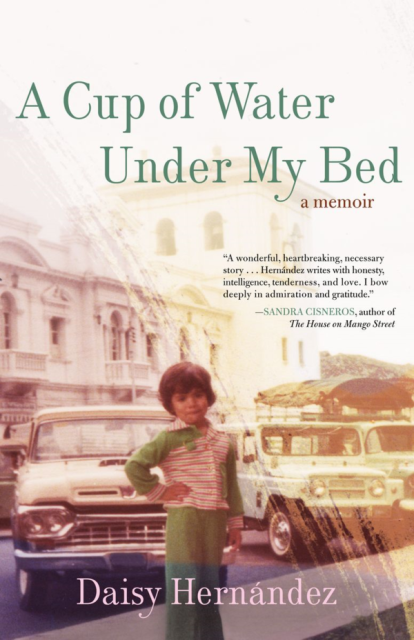
Hernández’s coming-of-age memoir is simply stunning. In elegant, evocative prose liberally peppered with Spanish, she writes about family, Colombian and Cuban American culture, Latinx spirituality, losing your mother tongue, racism, money, growing up working class and, of course, her bisexuality. There’s a stark honesty in Hernández’s writing, especially when she’s discussing her bisexuality: “There isn’t a good verb for what begins happening to me in college. Yes, I am meeting lesbians, but I am not one of them. I still find men attractive; it is that I am thinking of women in a new way. It is as if I am learning that I can shift my weight from one leg to the other, that I have a second leg. Kissing women is like discovering a new limb.”
Bi Any Other Name: Bisexual People Speak Out edited by Loraine Hutchins and Lani Ka’ahumanu

Bi Any Other Name is a seminal collection first published in 1991. In fact, it’s often lauded as the book that sparked a national bisexual movement in the US. Edited by two legendary bisexual activists, who together founded BiNet USA, this groundbreaking anthology was re-issued in 2015 with a new introduction for its 25th anniversary. The book includes more than 70 bi people from a variety of backgrounds describing their lives as bisexuals in prose, poetry, art, and essays. Most of the pieces address coming out and what bisexual identity means to the writer. It’s one of those collections that will make you feel less alone, whether you’re just coming out as bi or have been comfortable your identity for decades.
My Awesome Place: The Autobiography of Cheryl B by Cheryl Burke
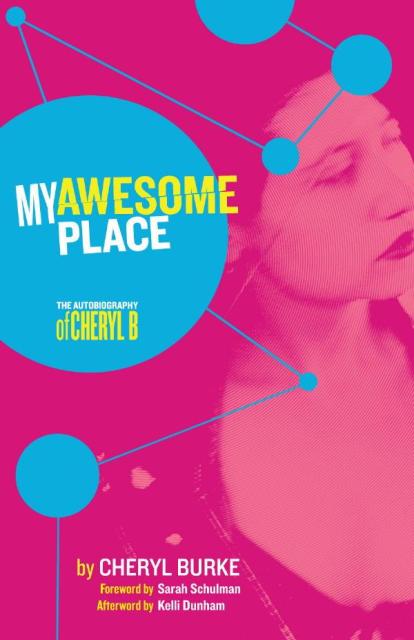
This Lambda Award winner is an authentic snapshot of the exhilarating art scene in the East Village of NYC in the 1990s as told through the eyes of Cheryl Burke, a bisexual spoken word poet, performance artist, playwright, and journalist. My Awesome Place chronicles Burke’s journey from her working-class New Jersey roots and an abusive family, her series of disastrous relationships with men and women, her “intense, intimate relationship with drugs and alcohol” and her queer creative coming of age in the East Village. Despite — or perhaps because of — the dark material, Burke’s sense of humor shines. The book was compiled from Burke’s papers after her early death and was finalized by her close friend Sarah Schulman, giving it a captivating urgency and immediacy.
Getting Bi: Voices of Bisexuals Around the World edited by Robyn Ochs and Sarah Rowley
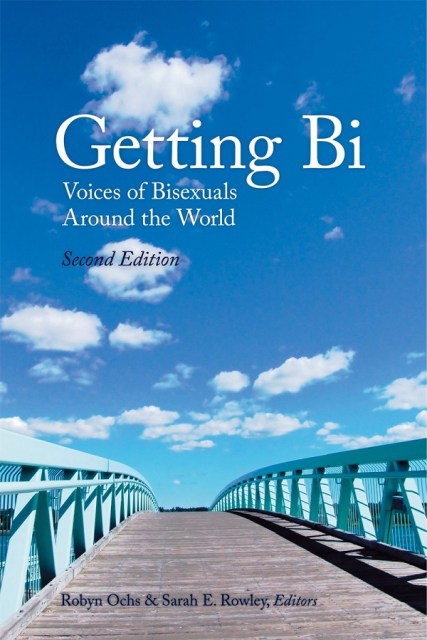
A now classic bisexual anthology with its first edition in 2005 and second in 2009, Getting Bi is admirable for how it really follows through on its promise to pay attention to intersectionality. It features short biographical essays from a variety of bisexual people, with attention to race, class, ethnicity, gender identity, disability and national identity. When they say “around the world,” the editors mean it: Getting Bi features writers from 42 different countries! With so many queer anthologies only representing the Anglophone world, Ochs and Rowley have really achieved something with Getting Bi. In addition to the affirming personal stories, the book also includes a wonderful — though American-centric — resource guide.
Sexual Fluidity: Understanding Women’s Love and Desire by Lisa Diamond
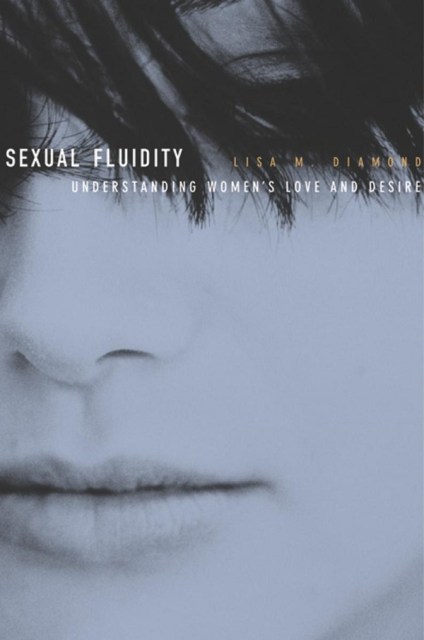
Sexual Fluidity might help you understand yourself in an entirely new way. Using years of research on bi-identified women and women who’ve experienced changes in their sexualities, Diamond argues fiercely against beliefs about sexuality based on research conducted almost entirely on men. Sexual Fluidity is a passionately defended book explaining that for (cis) women, sexual and romantic desire is much more likely to be neither hetero- nor homosexual, in contrast to (cis) men. Her work shows that for many women, sexual and romantic orientations are context-dependent, shifting as they age, and have different friend groups and relationships. If you’ve ever felt like stifled by traditional narratives of sexual identity, this book will be extremely validating.
Black Dove: Mamá, Mi’jo, and Me by Ana Castillo
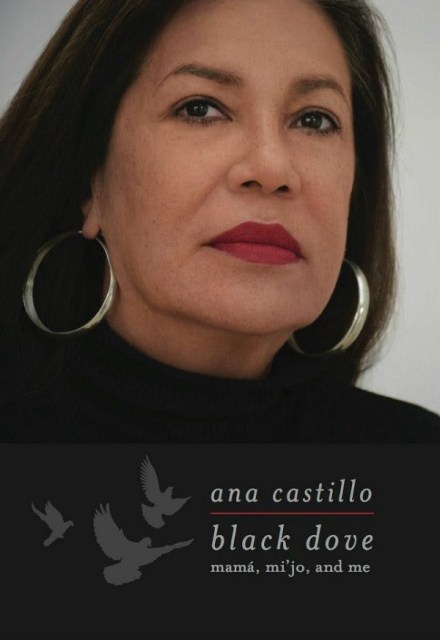
“‘Paloma Negra,’ Ana Castillo’s mother sings the day her daughter leaves home, ‘I don’t know if I should curse you or pray for you.’” A memoir written with a poet’s language, Black Dove is searing account of what it is like to be a single, brown, bisexual, feminist parent in the United States. With love and humor, Castillo tells her story, integrating those of her family and ancestors, from Mexico City to Chicago. She chronicles coming into her feminist, bisexual, and polyamorous identities, her son’s arrest and incarceration, and her complex relationship with her mother. The result is a powerful, beautiful Lambda Award winning memoir that puts a personal, human face on familiar depressing statistics about the effects of institutional racism and sexism.
Bad Dyke: Salacious Stories from a Queer Life by Allison Moon
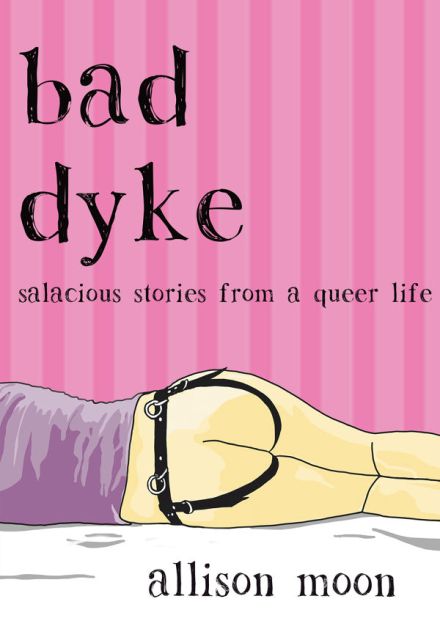
Moon’s collection of 18 memoirs are fun, raunchy autobiographical stories. There’s a lot of sex, but that doesn’t mean there isn’t also a lot going on emotionally and intellectually. Moon writes about falling in and out of love, as well as in and out of bed in bold, honest, and very funny prose. The stories are a tell-all of all sorts of often hilarious sex-related escapades, like masturbating in trees, getting an erotic piercing to fend off boredom, sleeping with porn stars, and more. She also writes about her long-term bisexual boyfriend and how they negotiate a queer relationship despite appearing to the outside world as a straight couple. Above all, Moon’s utter lack of shame and sex-positive attitude are infectious and just lovely to soak up.
Irrepressible: The Jazz Age Life of Henrietta Bingham by Emily Bingham
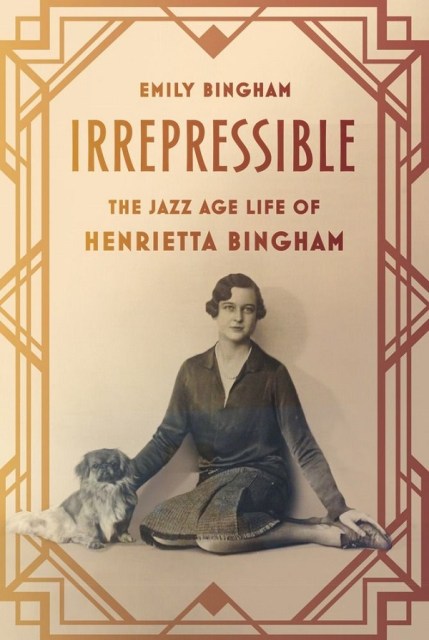
This scandalous biography written by the great niece of the book’s subject was a Bisexual Nonfiction Lambda Award winner last year. Born in 1901, Henrietta Bingham lived her life “like an F. Scott Fitzgerald character”: travelling the world, seducing people of all genders left and right, riding horses, drinking to excess, and singing the blues. Bingham came from a very powerful and wealthy family in the American South, and was expected to follow in her father’s footsteps to take over their publishing empire. She preferred, however, to “selfishly and shamelessly” pursue pleasure in many forms, while also struggling with depression and addiction. Her life is a fascinating story of a bisexual woman living in the 1920s and 30s who fiercely resisted the day’s gender and sexual conventions while also being unable to entirely escape them.
Bisexuality in Education: Erasure, Exclusion, and the Absence of Intersectionality edited by Maria Pallotta-Chiarolli
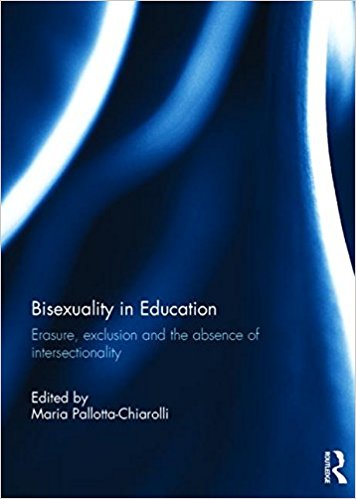
Winner of the 2015 Bisexual Book Award for nonfiction, Bisexuality in Education is a diverse anthology of essays about bisexuality in different areas of education by writers from the United States, Canada, Australia, and New Zealand. Some essays focus on the perspectives of bisexual students, such as a two-spirit person in Canada and a bisexual New Zealand woman, while others discuss bisexual health in the context of schools, educational policies and practices affecting bi people, and the use of bisexual books and film in an educational setting. Pallotta-Chiarolli emphasizes how three key concepts affecting bisexuality — erasure; exclusion by inclusion (bisexuality being conflated with homo- or heterosexuality); and the absence of intersectional thinking — underscore all the essays.
Dear John, I Love Jane: Women Write about Leaving Men for Women edited by Candace Walsh and Laura Andre
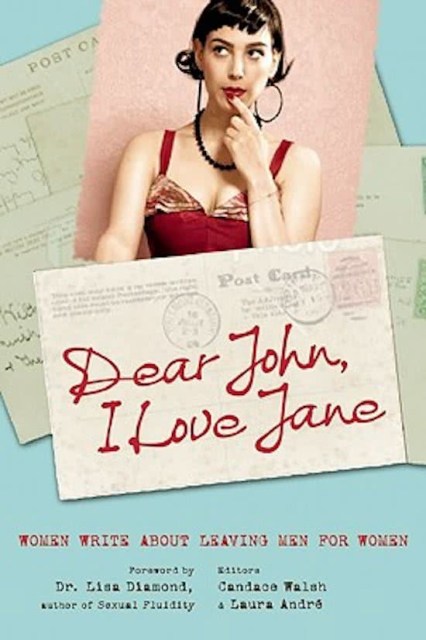
This powerful anthology offers a wide variety of experiences of queer women, including many on the bisexual spectrum. It’s a collection of personal stories about sexuality and coming out, but none of the narratives are of the “I’ve always known” variety. Similar to Sexual Fluidity, Dear John I Love Jane is an extremely validating book for women whose experiences with sexual identity don’t conform to mainstream gay or straight narratives. The kinds of stories you can look forward to include ones by a woman who falls in love with a woman for the first time at age 69, women who’ve only ever been attracted to one woman, and women who married men and were completely blindsided by their later (sometimes exclusive) attraction to women.
Advice from a Wild Deuce: The Best of Ask Tiggy by Tiggy Upland
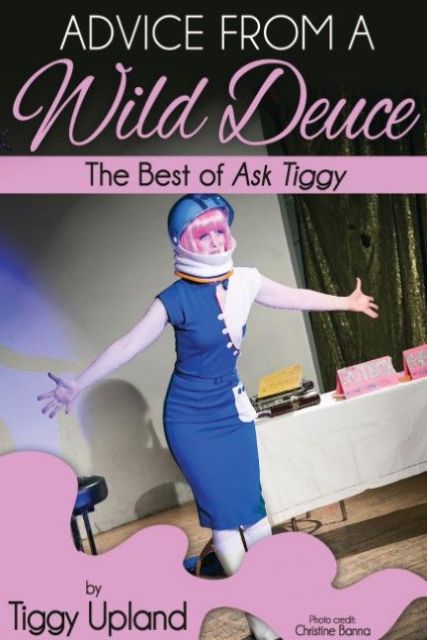
It can be really hard to navigate being a bisexual person in places where there isn’t much room for it. Luckily, Tiggy Upland is here to help, with her Ask Tiggy advice column for and about bisexuals, the best of which is collected in this book. Her advice, which originally ran as a column on the Bisexual Resource Center’s website, is compassionate but frank, always with a hint of her trademark eccentricity and wit. This is a rare book that is supremely entertaining while being informative at the same time. Advice from a Wild Deuce also features other content, including tips from Tiggy on coming out as bi, scripts from her performance art, a great index of resources, and sections from her delightful bisexual webcomic of miniatures “Upland.” Check out the webcomic on her website.
How Queer!: Personal Narratives from Bisexual, Pansexual, Polysexual, Sexually Fluid, and Other Non-Monosexual Perspectives edited by Faith Beauchemin
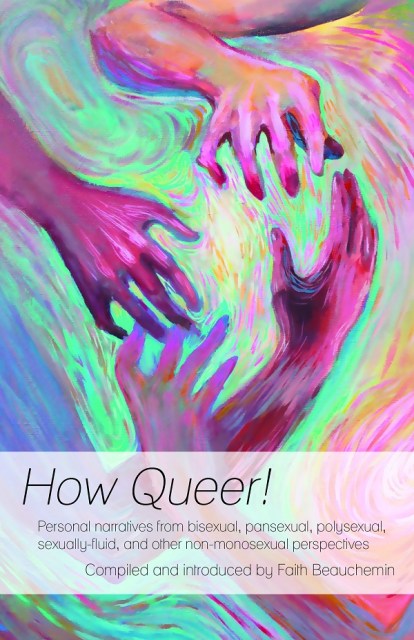
How Queer! is a two-fold collection including 14 autobiographical essays by a variety of non-monosexual-identified folks as well as five essays by Beauchemin putting the writers’ perspectives in the broader context of social justice and social change movements. The personal stories represent a nice range of different experiences of bi+ identity and life, while also having a thread throughout of how pervasive biphobia and monosexism can be even in supposedly liberal and tolerant places. Beauchemin’s essays are a great overview and introduction to 21st century queer politics and history — with an emphasis on the non-monosexual, obviously — which means this is an excellent book for someone who isn’t really familiar with them or needs a refresher.
Do you have any favorite bisexual nonfiction books to add to this list? Do you have thoughts about how these book titles under- and/or overuse the punning potential of the word bi? Let us know in the comments!





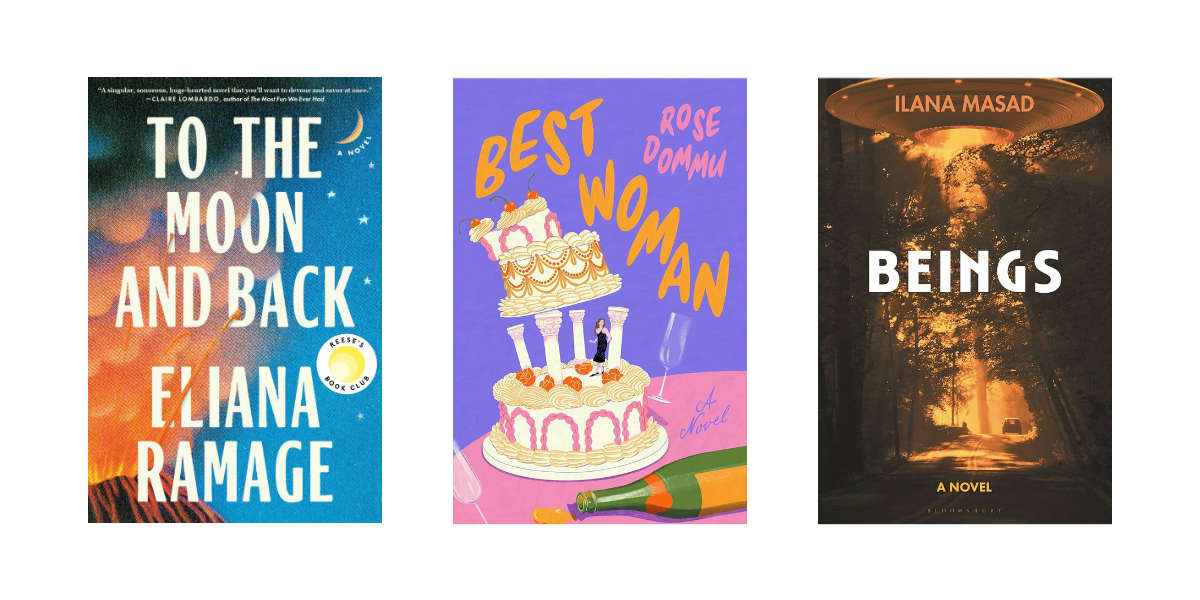


Comments
Yay. Thank you Casey.
And, bi the way, it’s not possible to overuse the punning potential of bi.
Hee hee.
i beg to differ (i’ve read a lot of these though)
You will just have to bi harder
Shout out to Sexual Fluidity! I have seen people discuss the possibility of having different and fluid sexual and romantic orientations before, but this is still the only book where I have seen my fears named by another woman. (Specifically, the fear of never finding a partner that I am fully attracted to, sexually and romantically.) It didn’t solve my problem per se, but feeling less alone helps.
Oh and also shout out to the first one (Notes for a Bisexual Revolution). That was the first time I ever felt called to think about how important it is not to forget that bisexual people have the right to be as slutty (or not) as anyone else, and that I don’t have to be a “good” bisexual. Just an honest one.
Yes! Yes! Yes!
Bisexuality and the Eroticism of Everyday Life (sometimes called Vice Versa) by Marjorie Garber is one that shifted my thinking some years ago. I also love the Lisa Diamond and was glad to see it listed
I haven’t read the Marjorie Garber one myself and saw some mixed reviews so wasn’t sure about including it. What did you like about it?
Tbh I’m not sure if I would react to the Garber book the same way now, 15-20 years later. My memories of the specifics aren’t strong, but it started me on the path of questioning whether I was attracted exclusively to women. So it was personally very influential for me
Is there any books on bisexuality were the woman/person bi part means woman and non-men?
Maybe I don’t get it, but what’s the deal with masturbating in a tree? I feel like that could be unsafe? Also, pretty sure a relative to Ethel Kennedy used that as an excuse as to why he couldn’t be the murder.
I’m not totally sure what your first question means. Many of these books discuss bisexuality in the context of attraction to more than one gender including non-binary genders, not limited to the idea of women being attracted to women and men. Is that what you mean?
It would definitely be great to have more explicit writing about non-binary people (as bi ppl themselves or as partners of bi ppl) in bisexual books!
Yes, that is what I mean. To me it kind of sounded like just women and men.
The way I understand bisexuality is that I am attracted to my own gender and to other genders.
For some of the books I’ve only put men and women in the description because that describes the content but for all others there are other genders represented!
Bi: Notes for a Bisexual Revolution has a chapter specifically about bi and trans identities, and also tackles questions about whether bisexual as a term “reinforces the gender binary.” It has specific discussion about bisexuality and nonbinary people, I recommend it highly.
Great list, thank you! I wrote my dissertation on how The L Word was both biphobic and transphobic, and I heavily relied on half of these books. Missed those bi puns! Next suggestion: Bi the Bi
Petition to improve bisexual book design!
(No, but really, I <3 this and thank you. Despite my distain for jewel tones)
Ugh, I know. The 25th anniversary edition of Bi Any Other Name is especially sad. If someone rich could give some money to publishers to design bi books that would be great.
<3<3<3
I’ll add “Bisexuality: A Critical Reader,” edited by Merl Storr. It’s a super helpful critical roundup of current and historical analyses.
And then for the dude-folks, there’s “RECOGNIZE: The Voices of Bisexual Men–An Anthology,” edited by Robyn Ochs and Dr. Heru khuti (as Sharif Williams). The essays and poems are gorgeous.
I really enjoyed Recognize. I read it for a book group and I was surprised by how compelling it was.
I have heard Recognize is great! I’m looking forward to reading it.
These look great! Thanks for suggesting them
This list totally rocks! I have only read Shiri Eisner’s book (which I cannot recommend enough to EVERYONE), and now I am definitely going to read the rest of these. Thank you for posting this!
Yay, thank you!
Did no one else think that Notes for a Bisexual Revolution was somewhat homophobic? It’s a while since I read it but I’m pretty sure it used terms such as ‘monosexual privilege’ and whilst I understand where that idea comes from, it implies that gay people are privileged over bi people which is just not the case. It just generally had that tone throughout, that bisexuals are more oppressed than gay people and even oppressed by gay people, which…..no. Of course gay people can be biphobic, and bi people can be homophobic, but it’s lateral prejudice and aggression, not oppression by either party imo.
I will definitely check out some of these though!
Notes for a Bisexual Revolution certainly has a radical/anarchist point of view and makes lots of points that some bi+ people (myself included) would debate or disagree with. I think at times Eisner’s thinking does have a bit of a “bi people can be more radical than gay people” vibe, which to me is not cool, but an understandable emotional reaction (similar to negative things gay people sometimes say about straight people) to devastating biphobia and monosexism within the queer community.
But the idea of monosexism (the widespread assumption that all people are only either gay or straight, linked to heterosexism, the assumption that all people are heterosexual)is foundational to all bisexual theory. This does not negate the specific oppression that gay people face but it claims that bi people face a specific, different kind of oppression. There isn’t a hierarchy of oppressions (bi people are oppressed worse than gay people or vice versa) but many different intersecting oppressions. Yes, that means in certain contexts gay people have privilege when compared to bi people, a privilege that they have in common with straight people. One example of this is how people with same gender partners are almost always assumed to be gay; people with different gender partners are almost always assumed to be straight. The readiness with which gay and straight people have their identities recognized and validated is a privilege bi people don’t have. To point out such privilege is not homophobic, just as pointing out sexism or racism in the queer community is not homophobic.
‘I think at times Eisner’s thinking does have a bit of a “bi people can be more radical than gay people” vibe, which to me is not cool, but an understandable emotional reaction (similar to negative things gay people sometimes say about straight people) to devastating biphobia and monosexism within the queer community.’
Absolutely I got that vibe, and whilst I do understand that that thinking is an understandable reaction to biphobia from gay people, I don’t think that justifies it – it’s still a damaging way of thought that I think should be examined and then understood to be wrong rather than something that should be put forward in published work which many people will go on to read and perhaps think is okay. And whilst I understand the comparison to negative things gay people say about straight people, I absolutely do not think it’s the same thing, considering straight people jokes or what have you are going to have no negative effect on straight people whereas negative rhetoric surrounding gay people will.
Monosexism is a difficult one for me – like, I agree with you, the societal belief that people can only really be attracted to one gender is at the core of biphobia, but I think the issue with popular discourse on monosexism I have is it seems to place equal power on both straight and gay people to oppress bisexuals when in reality only straight people have that systemic power.
I agree that gay people have certain privileges over bi people and vice versa, and that they are intersecting oppressions, what I have an issue with is the implication that one group is wholly privileged over the other, which was the vibe I got with Notes from a Bisexual Revolution. So, I agree that ‘the readiness with which gay and straight people have their identities recognized and validated is a privilege bi people don’t have’, I just think the implication that gay people are wholly privileged over bi people/have the same systemic power as straight people (which seems often to be the implication behind discussions of monosexism/monosexual privilege, though it doesn’t have to be – ie a more nuanced discussion could acknowledge that whilst gay people have that one privilege, they are not in the same position as straight people) is homophobic.
I remember the book specifically discussing how bi people tend to put too much blame on gay/lesbian people for biphobia even though that’s not where the structural power is. It comes from an emotional place; LGBT has B in it, it’s supposed to be our community, and when we come into it and feel rejected, it’s especially hurtful.
Ah okay, that’s good then! It’s a while ago since I read it and I probably only read about half of it and perhaps missed that part, so I’m definitely not putting myself forward as an authority on it.
Thinking about it more I think another thing is that the idea that straight and gay people’s identities are both readily validated is not entirely correct considering that straight people’s identities are validated far far more than gay people’s, even though gay people’s are often more validated than bi people’s. I just resent the implication in some discussions of monosexism that gay and straight people share the same specific privilege because the two identities aren’t validated to the same extent, even if they are both validated more than bi people’s. Does that make sense? I’m tired and might not be articulating well. I’m not even 100% sure what I think.
Yes, I totally agree it’s wrong to imply gay people’s identities are as accepted as straight people’s. But the concept of monosexism is to point out they’re accepted compared to bi identities. It’s incomplete but useful to view gay people as monosexual in some situations. An analogy might be that trans straight people’s identities are more accepted than trans gay people’s identities but that doesn’t mean trans straight identities are not still much less accepted than cis straight people’s identities.
Honestly, before I figured out I was bi and not gay I thought some of the same things as you! But I now have experiences where I experience gay and straight people as a group. For example, I am as nervous about coming out as bi to a gay person as I am to a straight person because in my experience it’s equally as likely one or the other will not be accepting. I’ve experienced monosexism from both groups pretty equally although not from everyone happily!
And while of course gay people don’t have the same power within society at large as straight people, they do have the most power in the LGBT community, even though statistically there are more bi identified people than gay and lesbian combined. That fact can be explained by monosexism.
I don’t know how you identify, C, but if you id as gay/lesbian I think it’s worth it to examine why you’re hesitant to acknowledge that monosexism is real and harmful and that monosexual (gay and straight) people have some privileges bi people don’t. It’s no different than acknowledging gay men have some privilege as men at the same time they don’t have other privileges because they’re gay. Just because they’re gay doesn’t mean they don’t have things in common with straight men. In my experience that feeling of hesitation and defensiveness is a sign of being uncomfortable that your privilege is being challenged. I’m personally really trying to work on that phenomenon as a white person right now.
All the best C!
Perhaps I’ve not expressed myself well enough – I do think monosexism is real and harmful and that gay people have a privilege in that aspect that bi people do not. It’s not the concept of monosexism itself I have an issue with, just the way that it is sometimes used – too many times I’ve seen people use it to say that gay people as a group are wholly more privileged than bi people, or that to be monosexual is inherently less radical than to be bi/pan/fluid. So I guess for me when I see the term used I’m not always sure as to how it’s being used, and I seemed to remember it being used harmfully in this book (though I may be wrong). But yeah, to clarify I do think monosexism is real and harmful.
(As to my own identity I’m not sure whether I’m gay or bi, though I’m publicly out as bisexual – due to coming out when I was relatively sure that was the case – and have certainly experienced biphobia from those who id as straight and gay.)
‘I think at times Eisner’s thinking does have a bit of a “bi people can be more radical than gay people” vibe, which to me is not cool, but an understandable emotional reaction’
Why can’t bi people be more radical than gay people? Society looks at bi people as semi-gay, as necessarily less radically queer. I think exploring the idea of bisexuality as radical in itself is a useful way of pushing back against that thinking.
I’m just uncomfortable with any idea that suggests such-and-such queer identity is inherently more subversive or radical than any other one. Julia Serano talks a bit about that concept as “subversivism” in Whipping Girl.
But I get what you mean about how it can be pushing back against the idea bisexuality can’t be radical. To me it’s only a problem if it’s framed as “bisexuality is always more radical than being gay.” “Bisexuality is radical” I am down with!
I see what you mean and I think bisexuality is radical in itself, but not more radical than gay identity – I think they’re just equally radical in different ways; bisexuality because it goes against the societal idea that people can only be attracted to one gender and in some cases that sexuality is concrete, and gay identity because it goes against societal expectations that everyone must be attracted to the ‘opposite’ gender.
The reason I think it’s harmful to suggest that either group is more radical than the other is that to suggest that bi people are more radical than gay people is to pressure and even shame gay people who have often fought hard not to have to be romantically/sexually involved with the opposite gender (especially women who are socialised to believe that their entire identities revolve around their relationship to men) by implying that they are somehow less radical for not doing so, and to imply that gay people are more radical than bi people is to shame bi people by invalidating their identities and implying they are ‘less queer’ than gay people. In both scenarios it just leads to more internalised biphobia and homophobia for each group, respectively, and feelings of shame and inadequacy.
So yes, absolutely celebrate that bisexuality is radical in itself, and in a different way to gay identity, but it’s damaging to say that it’s more radical.
I’m always devouring new queer books. Thank you so much for this list!
Hi, I am helping Robyn and the BRC boost visibility of their book, Getting Bi. Would you please take 30 seconds to leave a post your review on Amazon? https://amazon.com/dp/0965388158
(I read it last fall as a new Ally and it completely changed my perspective).